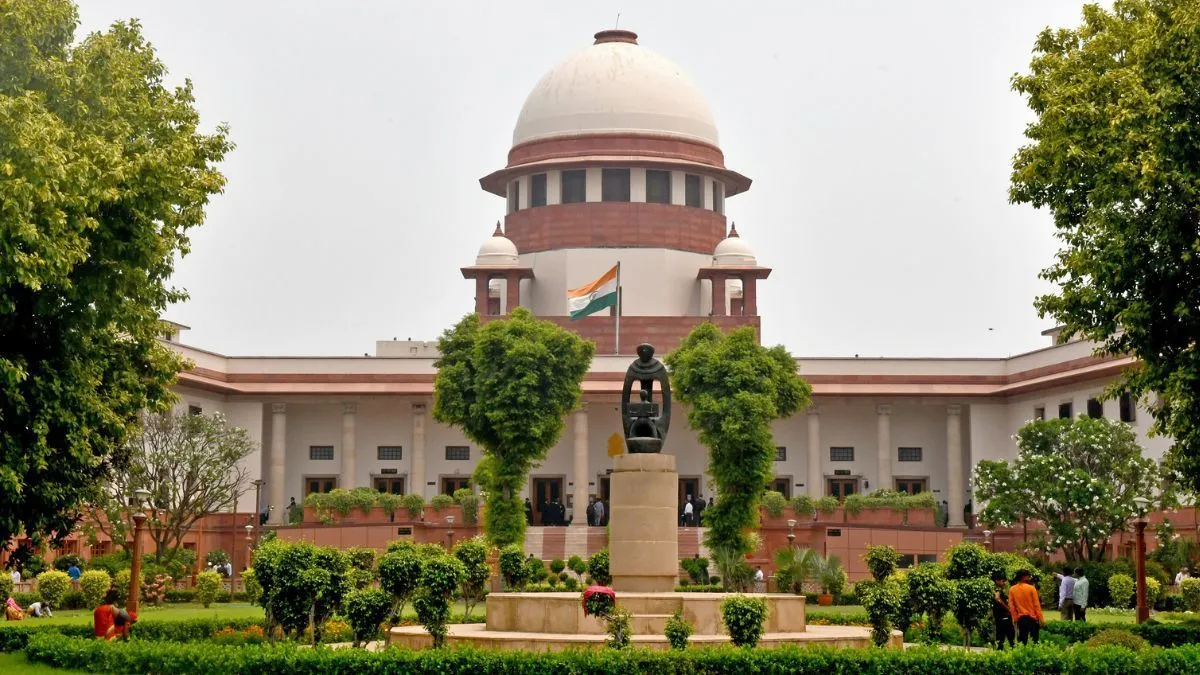- By Imran Zafar
- Fri, 04 Apr 2025 04:38 PM (IST)
- Source:JND
Congress MP Mohammad Jawed and AIMIM chief Asaduddin Owaisi moved the Supreme Court on Friday, challenging the Waqf (Amendment) Bill 2025, which was passed by the Parliament this week. The petitioners argue that the new amendments in the act discriminate against the Muslim community and infringe upon their fundamental rights guaranteed by the Constitution.
Mohammad Jawed, who serves as the Congress whip in the Lok Sabha and was a member of the Joint Parliamentary Committee on the bill, argues that the law is unconstitutional as it violates multiple fundamental rights, including Article 14 (Right to Equality), Article 25 (Freedom to Practice Religion) and Article 26 (Freedom to Manage Religious Affairs), Bar and Bench reported.
The petition, filed through advocate Anas Tanwir, states that the amendments disproportionately increase state intervention in Waqf affairs, unlike Hindu and Sikh religious trusts, which retain a higher degree of self-regulation. This, the petition argues, constitutes a violation of Article 14 and introduces arbitrary classifications lacking a reasonable connection to the law’s objectives.
ALSO READ: Waqf Amendment Act Passed In Parliament: How Will Legislation Play Out In Bihar Elections? EXPLAINED
Another issue raised in the plea is the restriction on the creation of Waqfs based on religious practice duration. The Congress leader claims that this limitation is not rooted in Islamic law, custom or precedent and discriminates against new Muslim converts, violating Articles 15 and 25.
"Such a limitation is unfounded in Islamic law, custom or precedent and infringes upon the fundamental right to profess and practice religion under Article 25. Additionally, the restriction discriminates against individuals who have recently converted to Islam and wish to dedicate property for religious or charitable purposes, thereby violating Article 15," the plea states as quoted by Bar and Bench.
The amendment also mandates the inclusion of non-Muslim members in the Waqf Board and Central Waqf Council, which Jawed calls unwarranted interference in religious governance. The plea highlights that Hindu religious endowments remain exclusively managed by Hindus under various state laws, making this selective intervention arbitrary and discriminatory.
Asaduddin Owaisi Files Petition Against Waqf Amendment Bill
AIMIM chief Asaduddin Owaisi also filed a petition in the Supreme Court on Friday challenging the Waqf (Amendment) Bill 2025. In his plea, Asaduddin Owaisi, Lok Sabha MP from Hyderabad, argued that the bill’s provisions blatantly violate the fundamental rights of Muslims and the Muslim community, as reported by Live Law.
During the Lok Sabha debate, Owaisi raised concerns over the bill’s constitutionality, particularly citing Article 14, which guarantees equal protection under the law. He alleged that the amendment allows encroachers to claim ownership of Waqf properties while imposing restrictions on Muslim ownership and administration.
''A Muslim will face restrictions on Waqf property, while an encroacher will become the owner overnight. A non-Muslim will administer it, violating Article 14,'' he said. Owaisi further argued that the bill discriminates against Muslims by stripping them of administrative control over Waqf properties.
The Waqf (Amendment) Bill 2025 was passed by both the Lok Sabha and the Rajya Sabha after a fierce discussion over two days. While ruling NDA MPs strongly defended the amendments, opposition parties criticised the bill as anti-Muslim. The bill is yet to come into force as it awaits Presidential assent.

